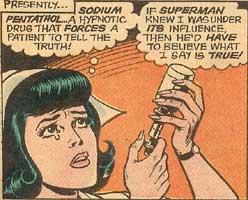 Learning how to learn about a business can come in handy.
Learning how to learn about a business can come in handy.In some ways, businesses are like individuals: They own things (property records), they pay taxes (property-tax records) and they sue people or get sued (court records), and they can go broke (bankruptcy filings).
Beyond that, they also leave special paper trails with:
-- Licensing agencies, agencies than permit corporations (Secretary of State's office)
-- Regulatory agencies (OSHA, EPA, FAA, FTC, state and local agencies, etc.)
-- Agencies that contract for products and services, or that grant business loans (SBA, CDBG, etc.)
What you can learn may also depend on what kind of business you're investigating.
Privately held businesses are generally owned by families or small groups of individual investors, who share the profits and the risks. They do not sell shares to the public. Typicially, you'll find less public information about them, although you may find plenty through trade or business sites, such as Hoover's.com. (Its free service offers basic info and links to news and press releases. Try searching for Mars, Incorporated. The pay service will look up company's public paper trail.)
Publicly traded companies share the profits and risks with shareholders, who buy and sell shares to the public in stock markets. To protect shareholders from being swindled, such companies are regulated by federal and state governments.
The federal regulator is the Securities and Exchange Commission, which To requires such companies to file a whole string of public reports, which can tell investors -- and reporters -- a lot about the way the company operates. You'll find annual and quarterly financial reports, announcements of major changes in ownership, etc.
In Montana, the State Auditor regulates companies that sell securities (stocks and bonds) and insurance. The auditor occasionally investigates wrongdoing and can instigate prosecutions through the courts.
Nonprofit companies or organizations are a different breed of business altogether. Most are exempt from paying taxes, and in return for that special treatment they must file an annual report (IRS Form 990 or PF990) that outlines what they do, how much money they take in and spend, who runs the show, etc.
Companies are required to keep copies of these reports for inspection but you can also order them from the IRS or find them online through an outfit called Guidestar.








